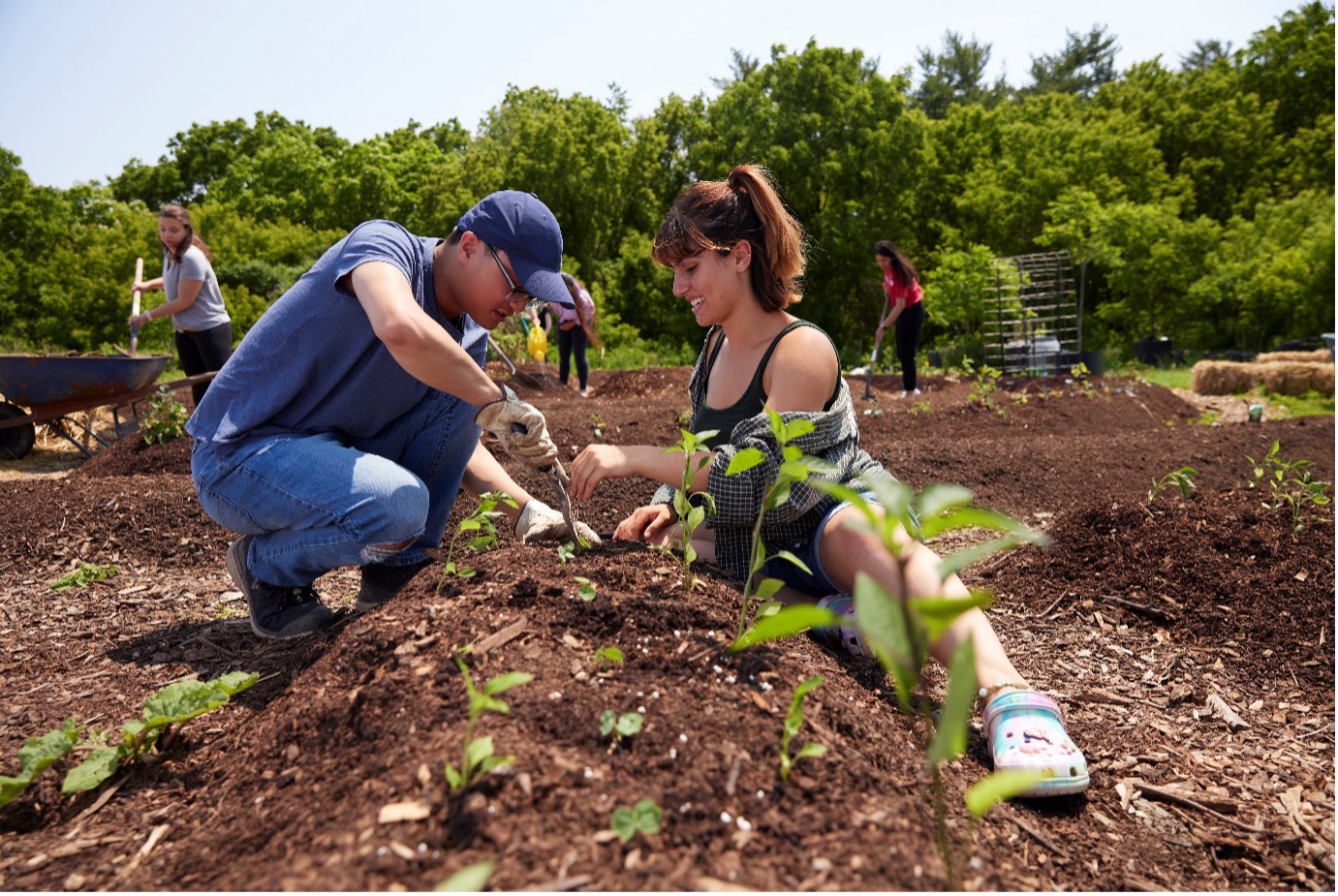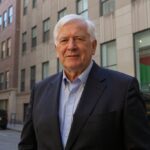York University’s Faculty of Environmental and Urban Change (EUC) is all about action. It prepares future leaders to make an impact through a mix of rigorous knowledge and hands-on training. It’s an effective combination – one that empowers tomorrow’s problem solvers, policymakers, and planners to tackle urgent environmental and urban challenges head-on. That’s exactly what Timothy Ong set out to do when he joined EUC.

Ong’s work placement as a Communications and Marketing Assistant with the EUC is helping him advance his design and public speaking skills. Source: York University
Passion to profession
Ong, a fourth-year student originally from Singapore, has always been drawn to nature and wildlife. “I chose to study in the Sustainable Environmental Management programme because of my passion for the environment and interest in environmental policy and wildlife conservation,” he shares.
Since joining this globally-recognised university, ranked among the top 35 worldwide in the 2024 Times Higher Education Impact Rankings, Ong’s commitment has only grown – all thanks to EUC’s commitment to hands-on learning.
Besides academic training, the faculty offers students various experiential education opportunities designed to complement their growth. From co-op options across programmes to work-study placements, research assistantships on campus, and field or lab training with over 500 community partners, it supports a learning journey grounded in real-world experience.
Dedicated educators like Teresa Abbruzzese, an assistant professor in the Cities, Regions, Planning (CRP) programme, make the experience even richer. “I am committed to student-centred accessible education and creating experiential learning opportunities for students,” she says. “Practical settings can provide students opportunities to engage with ideas, tools and people in ways that can enrich their knowledge and skills in their chosen field”.
Abbruzzese would know. Prior to joining EUC’s stellar faculty line-up, she was a student pursuing a Master’s in Environmental Studies (Planning) and eventually a PhD. She was then offered a contractually limited appointment (CLA) in Urban Studies, which led to a full-time teaching role. Like her peers, she’s committed to leveraging her network to ensure students get clear previews of the industries they will soon join.
Thanks to EUC partners and collaborators, students benefit from guest speakers, local field trips within the Greater Toronto Area, and excursions abroad to field-schools in Montreal and the Las Nubes Study programme in Costa Rica.
Ong, a recent participant, shares, “Staying with a local family in Costa Rica gave me an authentic perspective on remote life. We explored chocolate and coffee farms, visited beautiful ecosystems, and learned about environmental management in a whole new climate. This experience broadened my perspective in ways I never imagined.”
The BA in Global Geography (BA) programme, ranked #6 in Canada by QS Geography Subject Rankings is another great example of York’s experiential education mandate. This programme examines the connections between human societies and physical environments, teaching students to analyse global processes like urbanisation, inequality, migration, and environmental change.
Through classroom activities, lab exercises, and fieldwork, students gain technical expertise in GIS, data analysis, research methods, and field techniques, while sharpening their communication, reasoning, and leadership skills to address societal and environmental issues.
For those considering further study, the EUC offers pathways to professional roles. These include a 3+2 programme that combines an undergraduate Bachelor in Environmental Studies (BES) with a Master’s in Environmental Studies (Planning) for future urban planners; undergraduate programmes that lead to teacher certification when paired with a Bachelor of Education (BEd); and a 4+1 option that pairs any undergraduate programme with one year of graduate study at the Schulich School of Business’s Master of Management programme.

With over six years of experience in experiential education, Sammy is passionate about helping students “engage, explore, and embrace the fear of failure.” Source: York University
Empowered and Impactful
The Faculty of Environmental and Urban Change is as career-readying as it is horizon-broadening. For example, “The co-op programme enhances students’ skill development, strengthens their résumés, and improves work readiness before graduation,” explains Aren Sammy, Experiential Education Coordinator at EUC.
Through early networking opportunities, students connect with organisations like HydroOne, GFL Environmental Inc, Toronto and Region Conservation Authority (TRCA), the City of Toronto, Parks Canada, EcoCanada, and the United Nations – all of which need more highly skilled professionals in the environmental sector.
Senior students can take part in the Cross-Campus Capstone Classroom (C4) programme. This capstone opportunity sees them form interdisciplinary teams to tackle real-world challenges. These year-long projects are client-driven, involving corporations, municipalities, and non-profits aiming to advance the United Nations’ Sustainable Development Goals.
It is this blend of academic and hands-on learning, along with EUC’s career support, that prepares students to become innovators. Its network of 14,000 alumni across over 80 countries includes environmental educators, urban planners, lawyers, research analysts, and advocates for sustainability and justice.
Ong is set to join them in creating positive change for a better world. “I plan to use the skills gained in my placement to find a similar position in an environmental organisation while further advancing and sharpening those skills through any assigned projects,” he says.
Follow York University on Facebook, X, Instagram, LinkedIn, and YouTube.










